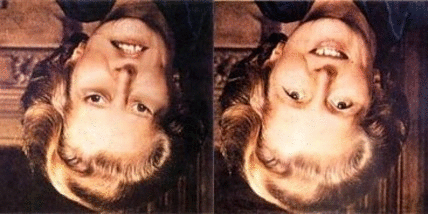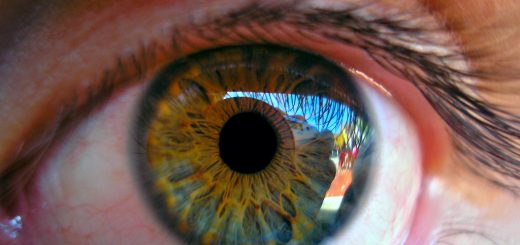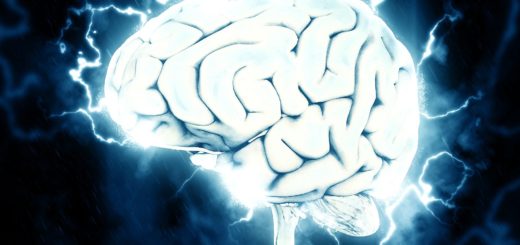An Evening with Richard Wiseman

The Admiral Bar was packed almost to bursting point as many people gathered to listen to one of the most well-known psychologists out there – Richard Wiseman. Richard went through his talk in an autobiographical way, detailing the many different and exciting things he has been involved in throughout his career. The audience were treated to a couple of magic tricks and Richard explained about how they work via theories of attention. Knowing the trick doesn’t always help you from being fooled by it, as Richard repeatedly demonstrated by making a coin “disappear”.
We then saw the Thatcher Illusion (see .gif below – you might have to click it). Faces are such an important stimulus, that our visual system insists on “seeing” them everywhere; there have been reported sightings of Jesus on a piece of toast and demon faces in a lake. Our brains have evolved to spot a face even when there isn’t one there, rather than missing a face that is there. This is why the Thatcher Illusion works. Even though you know the eyes have been flipped, your brain recognises a normal face.
Sometimes, it seems, we are a slave to our squidgy neurons inside the skull, but could we train our perception to improve our everyday life? Perhaps so. Richard continued by explaining some of the research he’s been involved in by describing his studies about luck. People often believe that they are either lucky or unlucky, and that’s that. In fact, research has shown that people who consider themselves unlucky have a much smaller attentional spotlight. When asked to count the number of photos in a newspaper for an experiment, they are much less likely to notice the large message on one of the pages telling them to “Stop counting! There are 52 photos” or “Stop! Tell experimenter you’ve seen this sign for £100”. Thus, a lot of aspects of “luck” may, in fact, be due to being better at noticing potential opportunities and having the self-confidence to take them. As a homework exercise, perhaps we should all try and be more observant – you never know what you might be missing out on.
(CONTINUE READING ARTICLE FOR MORE SCIENCE AWESOMENESS)
Despite the intriguing results of research like this, people also find it really hard to change their beliefs. Richard showed us an excerpt from a TV show he was involved with, that had a segment about firewalkers. According to physics principles, people can safely walk across hot coals for about 10 feet without serious injury. For the TV show, the firewalkers were challenged to walk further than that and they were certain that they could do it by practicing meditation the whole day before the stunt. In the end, none of them managed to walk the whole length of the path, so Physics 1 – Meditation 0. But did second degree burns help change their beliefs? Not at all. They claimed that they had not had enough meditation time, or their guardian angel had not been with them, to rationalise the failed firewalk. Whilst it made for quite good television (although perhaps a little unethical), it was also a chilling reminder that evidence, despite how much we want it to, may not always have the persuading effect we think it has. It looks like, in addition to being more observant, we should try to be more open-minded to new evidence as well.
Richard concluded the talk with the science behind sleep and spoke about his upcoming book – Night School. He explained that for many years it was believed that sleep was simply a state of unconsciousness; and from that you would reasonably conclude that we had all evolved to do absolutely nothing for a third of our lives – a ludicrous thought. So he started looking into sleep, in particular how to deal with the so-called ‘sleeplessness epidemic’ we are experiencing in the western world. The book covers the basics of sleep and how we can improve it. Some of it, like not staring at your laptop/smartphone an hour before bed, we have possibly heard before, but information on just how much it affects us is sure to raise eyebrows (not a recommended sleep technique). It is also meant to cover some rather exciting ideas, such as problem solving during sleep. With more than half of adults reported to suffer from sleep issues, this book sounds like an informative and useful resource.
Overall, an entertaining insight into our minds and how we can tweak them to get the most out of each day (and night!).
If you want more information/awesome science entertainment, check out Richard’s YouTube channel Quirkology and his Twitter.











